Bachelor of
Early Childhood Education (Birth to 8)
Entry requirements
Key information
overall
overall
Note: Part-time equivalent study options are not available for international students.
*For students admitted in the City campus offering of this course, not all core topics are delivered in the City Campus, some classes are required to be completed at Bedford Park Campus
Shape Bright Futures: Become a Qualified Early Childhood & Junior Primary Teacher
Make a meaningful impact in children’s lives with Flinders University's Bachelor of Early Childhood Education (Birth to 8). This nationally accredited degree qualifies you to teach in both early childhood and junior primary school settings, preparing you to support children’s learning and development from birth through their foundational school years.
With extensive professional placements and a strong focus on educational theory and practice, you’ll graduate classroom-ready and confident to lead, teach and inspire the next generation.
Scholarship Opportunity
35 Enabling Educator Excellence (E3) Scholarships, valued at $5000, will be available for students commencing in 2026.
No.1 in SA in Education & Training for learning resources, overall educational experience and teaching quality.
The Good Universities Guide 2025 (undergraduate)
5 stars in Education & Training for learning resources and teaching quality.
The Good Universities Guide 2024 (postgraduate)
No.1 in SA in Education & Training for full-time employment, learning resources, overall educational experience, student support and teaching quality.
The Good Universities Guide 2025 (postgraduate)
Career-ready for early childhood and junior primary education
Launch a rewarding teaching career spanning the early years to junior primary classrooms. Flinders’ Bachelor of Early Childhood Education (Birth to 8) prepares you to teach in preschools, early childhood services, and junior primary classes (Reception to Year 2). With strong industry connections and in-demand skills, you’ll graduate ready to support children’s learning. This degree also opens pathways to further study or leadership roles in education.
Salary
$80K - $126K
typical salary in Australia
Job opportunities
2,276
in Australia, 2025
Junior Primary Teacher
Junior Primary Teachers guide children through their first years of formal education, from Reception to Year 2. You’ll design and deliver engaging learning experiences that develop essential skills like literacy, numeracy, and social-emotional learning, helping children build confidence and a love of play and learning.
Collaborating with families and school communities, you’ll support each child’s growth during this important stage, making a lasting difference in their educational journey.
Early Childhood Teacher
As an early childhood teacher, you'll play a vital role in shaping the foundational years of children aged birth to five, designing play-based learning programs that nurture curiosity, creativity, and social-emotional development.
Whether working in kindergartens, preschools or long day care settings, you’ll support children’s growth while building meaningful relationships with families and communities, contributing to lifelong learning outcomes.
Salary
$90K
typical salary in Australia
Jobs growth
21.6%
5-year projection
Sources: Jobs and Skills Australia, 2025 | Seek Australia, 2025 | SA Department for Education
Early Years Policy Adviser or Consultant
Early Years Policy Advisers and Consultants use their expertise to shape policies and programs that improve early childhood education across Australia. Working with government or community organisations, they influence quality and access to services for young children and families. This career is ideal if you want to drive positive change in the sector by applying research and advocacy beyond the classroom.
Early Childhood Centre Director
As an Early Childhood Centre Director, you’ll lead the day-to-day operations of an early learning centre, managing staff, compliance, budgets, and curriculum delivery. This role blends educational expertise with leadership and business skills, making it ideal for those passionate about shaping quality early learning experiences. With growing demand in the sector, Centre Directors play a key role in meeting national standards and supporting inclusive, high-quality education.
Child Development Specialist
Child development specialists support children’s growth by identifying developmental needs early and working with families and educators to create tailored strategies. Drawing on knowledge of child psychology and behaviour, they help foster learning and wellbeing across early childhood settings. This role is often based in community services or allied health environments, making a real difference in children’s lives.
What will you study to start your career in early childhood and junior primary teaching?
Study a variety of core topics and get hands-on experience with professional placements.
- Year 1
- Year 2
- Year 3
- Year 4
In your first year, you’ll study core topics, explore play-based learning and early education theories, and complete your first professional placements.
Year 1 - Core topics
Your first year might include the following topics. For exact topic information, visit the course Handbook.
- Professional experience
- Philosophies of early childhood
- Expressive arts
- Pedagogies of belonging
- Health and physical education
- Partnerships, parents and participation
- Play, learning and development
In your second year, you’ll explore literacy and numeracy through play and study inclusive teaching practices. You’ll also commence your Curriculum Specialisation Minor.
Year 2 - Core topics
Your second year might include the following topics. For exact topic information, visit the course Handbook.
- Inclusive education
- Language development
- Play and development
- Indigenous pedagogy
- Early literacy and numeracy
- 9 units from a Teaching Curriculum Specialisation Minor
In your third year, you’ll complete a six-week birth to 5 or preschool placement, study early reading, mathematics in the junior primary classroom, relational pedagogies, and early science teaching.
Year 3 - Core topics
Your third year might include the following topics. For exact topic information, visit the course Handbook.
- Professional experience
- Reading in the early years
- Mathematics
- Relational pedagogies in early childhood
- Discovering technologies
- 4.5 units from a Teaching Curriculum Specialisation Minor
In your fourth year, you’ll complete a final placement, study writing and literacy in the junior primary classroom, inclusive education, and continue with the Teaching Curriculum Specialisation Minor.
Year 4 - Core topics
Your first year might include the following topics. For exact topic information, visit the course Handbook.
- Professional experience
- Writing in the early years
- Curriculum, programming and planning
- Leadership in early childhood
- Playing on country
- Supporting children on the autism spectrum
- 4.5 units from a Teaching Curriculum Specialisation Minor
Curriculum Specialisation Minor
Gain subject-specific expertise
Specialise to strengthen your teaching and align with the Australian Curriculum. Choose from PE, Visual Arts, Humanities & Social Sciences, Languages or Science.

Accreditation or Professional Recognition
This degree is accredited by the Australian Children’s Education and Care Quality Authority (ACECQA)
Graduates earn a recognised qualification that enables them to become qualified early childhood teachers across multiple settings. This accreditation supports your eligibility to register with the Teachers Registration Board of South Australia and meets ACECQA’s employment requirements, helping you build a career locally, interstate, or abroad.*
*Additional conditions may apply outside of South Australia.
Advance Your Education Career with an Honours Year
Flinders offers a one-year Bachelor of Education (Honours) program designed to enhance your knowledge and research skills. You’ll work closely with experienced academic supervisors on an independent research project that can open doors to leadership roles or further postgraduate study.
If you’re studying or have completed the Bachelor of Early Childhood Education (Birth to 8), you can tailor your honours project to match your interests and career goals, specialising in areas such as early childhood pedagogy or curriculum design.
This additional year is ideal for those wanting to stand out in the field and make a meaningful impact in early childhood education.
No.1 in SA in Education & Training for learning resources, overall educational experience and teaching quality.
The Good Universities Guide 2025 (undergraduate)
5 stars in Education & Training for learning resources and teaching quality.
The Good Universities Guide 2024 (postgraduate)
No.1 in SA in Education & Training for full-time employment, learning resources, overall educational experience, student support and teaching quality.
The Good Universities Guide 2025 (postgraduate)
Discover South Australia.
Where world-class education meets laid-back coastal living. With pristine beaches, acclaimed wineries, and vibrant festivals at your doorstep, South Australia offers an unmatched student experience.
Photo credit: SATC
Get inspired.
Discover more about Flinders University’s Early Childhood Education degrees.
Study Early Childhood Education in our new teaching space
Our new Early Childhood teaching space, Pintya Kuu, allows students to practice the practical components of their degree in a supportive environment to prepare them for teaching children in their most important years.
“All my tutors and lecturers are really helpful. They provide me with active feedback and provoke equality in the classroom.”
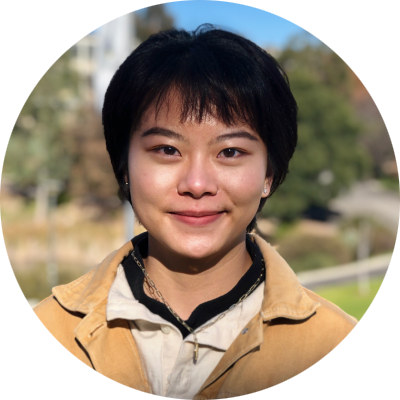
Zinan Wang
Bachelor of Early Childhood Education (Birth - 8), Bachelor of Arts
“The Flinders community is valuable as it is diverse and allows everybody to feel a sense of belonging.”
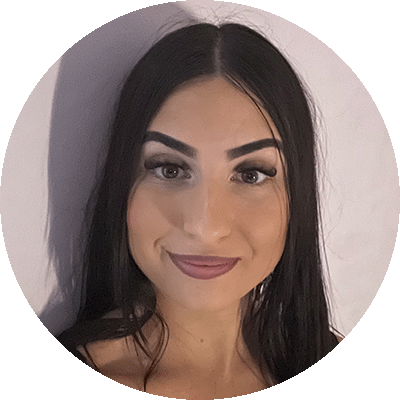
Iliana Pasta
Bachelor of Early Childhood Education (Birth - 8)
“I leave every class feeling more passionate and excited about my future career.”
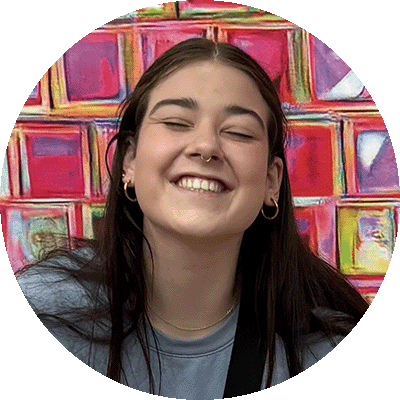
Clover Pearl
Bachelor of Early Childhood Education (Birth - 8)
Need support?
International Student Services (ISS) is the first point of contact for international student support. The university also offers everything from cultural, health, and wellbeing services, to academic support.
Campus tours
Take a virtual tour of our campuses, guided by your fellow international students.
FUSA
Flinders University Student Association (FUSA) is the heart of the Flinders Experience. FUSA is where you'll find out about events, club memberships, and extracurricular activities.
Accommodation.
Adelaide has many accommodation options for international students. You can choose to live on campus, at our city accommodation provider The Switch, or in rental accommodation.
Flinders offers a vibrant, fun, supportive uni experience you’ll remember for a lifetime.
Need support?
From cultural, health and wellbeing services, to study and financial support, enrolment advice and more, we’re here to help.
Student clubs
Flinders University Student Association (FUSA) is the heart of the Flinders Experience. FUSA is where you’ll find out about events, club memberships and extracurricular activities.
Campus facilities
Flinders’ campuses are hubs of activity, with retail and food outlets, library spaces, study and chill spaces and more.
Learn from the experts.
Our incredible teaching and professional staff are experts in their fields and well-connected to the industry.

Course Coordinator
Rachael Hedger
Rachael Hedger is Course Coordinator and a senior lecturer in Early Childhood Education at Flinders University. With extensive experience as a Preschool Room Leader and primary school teacher in both Australia and the UK, Rachael brings a wealth of practical knowledge to her role, ensuring you'll receive a comprehensive and engaging education.
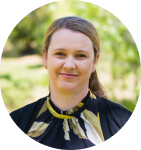
Senior Lecturer
Dr Timna Garnett
Timna is a passionate senior lecturer in Early Childhood Education at Flinders University, specialising in science and technology. Her extensive experience and research in STEM learning, conservation education, and digital technologies will provide you with innovative and practical teaching strategies. Timna's expertise ensures you are well-prepared to inspire and educate young minds effectively.
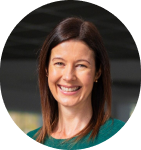
Lecturer
Linda Gray
Linda is an early childhood lecturer who teaches early childhood curriculum with a focus on mathematics and community partnerships. As Academic Professional Experience Coordinator, she ensures third and final year students are well-prepared for their teaching careers. Linda is dedicated to fostering student success and support.
Gain real world experience.
The Bachelor of Early Childhood Education (Birth to 8) prepares you for a rewarding career teaching children from birth through to early primary years, with extensive hands-on experience and strong industry connections.
You’ll complete a minimum of 80 days of professional placements across a variety of early childhood and junior primary settings - from birth to ~Year 2 - starting in your first year. These placements let you apply your learning in real classrooms and care environments, developing skills in relationship-building, educational planning, creative teaching, and effective use of technology.
During your placements, you’ll form meaningful connections not only with children but also with families, communities, and fellow educators. This relational approach is key to succeeding in collaborative early learning and junior primary settings.
Flinders’ established industry partnerships connect you directly to the early childhood and school education sectors, opening doors to professional networks, future employment, and a confident transition into teaching roles.
Before placements, you’ll need a Working with Children Check and RRHAN – Education and Care certificate. Some placement sites may also require immunisation evidence.
Financial Support while you're on placement?
You could be eligible for the Commonwealth Prac Placement - up to $331.65 per week.*
Begins July 2025 | Teaching, Social Work, Nursing and Midwifery
*Terms and conditions and eligibility criteria apply
Let’s get started on your Flinders’ experience.
We know not everyone begins uni the same way, so we offer a variety of pathways into Flinders.
Use the dropdown to tell us a bit about you.
Alternative pathways
UniTEST
If you’re in Year 12, taking the free uniTEST can help boost your chances of getting into Flinders.
Research Project B Pathway
Strong results in your Research Project B subject along with your Year 12 results can be considered for entry.
Year 12 Grades Entry
By using three of your best Year 12 grades, you can also gain a place in your course of choice.
School Recommendation Program
Your school’s recommendation about your academic performance may be considered as part of your admission.
If you started uni but didn't finish, you may be able to gain entry into Flinders with a higher education transfer.
Higher education transfer
If you’re studying at another university, you may be able to transfer to Flinders based on your Yr 12 results, current GPA or other factors.
If you've had TAFE or VET training, you may be able to continue your study with Flinders.
TAFElink
Even if you didn’t finish high school (Year 12), you may be able to study at Flinders through your TAFE/VET qualification.
Dual offer pathways
You may be able to complete a TAFE SA course and have guaranteed entry into Flinders.
Credit transfer
The TAFE/VET stud you’ve already done may be able to be used as credit towards a Flinders’ course.
No ATAR? No worries. If you've got work or life experience, there are pathways into Flinders.
Flinders Foundation Studies
The Foundation Studies Program is free and guarantees entry to a range of degrees.
Skills for Tertiary Admissions Test (STAT)
The STAT is a 2-hour multiple choice test that assesses your abilities.
Year 12 qualifications
If you completed Year 12 more than two years ago you can still use your results to apply.
Concerned about your ATAR? If it doesn't meet the course requirement, or if you don't receive one, we offer alternative pathways to admission. Contact us to discuss your options—we're here to help.
Applicants must complete a non-academic assessment task known as a Teaching Capabilities Statement as part of their application to demonstrate their motivation to teach, their strong interpersonal and communication skills, willingness to learn, resilience, self-efficacy, and strong organisational and planning skills. This involves a short statement in response to three set questions used to demonstrate suitability for study and work in the teaching profession.
Applicants who select this course as a preference during the application process will be directed to a page to meet this requirement.
- Entry requirements
- Application options
Applicants must complete a non-academic assessment task known as a Teaching Capabilities Statement as part of their application to demonstrate their motivation to teach, their strong interpersonal and communication skills, willingness to learn, resilience, self-efficacy, and strong organisational and planning skills. This involves a short statement in response to three set questions used to demonstrate suitability for study and work in the teaching profession.
Applicants who select this course as a preference during the application process will be directed to a page to meet this requirement.
Visit the Teaching Capabilities Statement page for further information.
The Australian Government has introduced the Literacy and Numeracy Test for all initial teacher education (ITE) students to ensure they have the high level of personal literacy and numeracy skills required of teachers.
The test is a national instrument designed to assess elements of an individual's literacy and numeracy skills and will be used to demonstrate that ITE graduates are in the top 30 per cent of the population for literacy and numeracy.
All students graduating from any ITE course in South Australia must have achieved the standard for both the literacy and numeracy components of the Literacy and Numeracy Test for Initial Teacher Education (LANTITE) to graduate.
For further information, including registration details, please check the ACER Teacher Education website.
There are also important inherent requirements for this course and applicants are strongly advised to become aware of these requirements.
If you don’t meet our English language entry requirements and need to improve your English language proficiency, you can do so through Flinders University Academy – or our approved English Language Instruction Course for Overseas Students (ELICOS) providers.
This means that you can attend the required English language tuition at approved ELICOS providers and gain direct entry into university without an IELTS or TOEFL test.
If you don’t meet our academic entry requirements, you can still gain entry to Flinders University through Flinders University Academy. With a range of diplomas, foundation and English language courses, students can find a direct pathway into the destination degree of their choice.
How to apply
Select your course.
Check entry requirements.
Check your eligibility for credit.
Obtain certified documents.
Submit your application and documents.
Application options.
Apply online
Follow up our step-by-step guide to help you with your application to study at Flinders.
Find an agent
Our registered education agents around the world understand the university system and will guide you through the application process.
Contact us
Get in touch with our team to discuss your preferences, career options, pathways, and course and entry requirements. We are here to ensure you have everything you need to choose the right degree for you.
Don't meet academic requirements? Don't worry. We'll help you get there.
Preparatory courses
If you lack required English proficiency, improve through Flinders University Academy or approved ELICOS providers for direct university entry without IELTS/TOEFL tests.
Flinders University Academy
If you do not meet entry requirements for your desired degree, Flinders University Academy will provide you with a direct pathway into the destination degree of your choice.
Frequently asked questions.
Over the years, many questions have been asked by students before. For the quickest answers view our frequently asked questions or browse the full list @ Ask Flinders.
Yes, there is strong and ongoing demand for qualified early childhood educators in Australia. The Early Childhood Education and Care (ECEC) sector has been identified as a critical area for workforce development by the Australian Government. A recent capacity study by Jobs and Skills Australia highlights the need for more skilled professionals to meet the growing demand for quality early learning services
Graduates with a Bachelor of Early Childhood Education (Birth to 8) are well-positioned to enter a rewarding and essential profession that supports the development and wellbeing of Australia’s youngest learners.
According to Jobs and Skills Australia, early childhood teaching jobs are set to increase from May 2024 - 2034 by 8.6%
(Jobs and Skills Australia, 2024 Employment projections to 2034).
Studying the Bachelor of Early Childhood Education (Birth to 8) at Flinders University prepares you for a diverse and rewarding career across the early years and junior primary education sectors. You’ll graduate qualified to teach in a variety of settings, including:
- Preschools and kindergartens
- Long day care and early learning centres
- Reception to Year 2 classrooms in primary schools
- Family day care environments
- Education and care services in both government and non-government sectors
This nationally accredited degree also supports your eligibility to register as an early childhood teacher in Australia, enabling you to work across metropolitan, rural, and remote locations. Graduates are well positioned for roles in teaching, leadership, curriculum design, early years consultancy, or further postgraduate study.
According to SEEK, in Australia, the average annual salary for an early childhood teacher is typically around $90,000 per year.
Yes, graduates can choose to pursue honours programs, postgraduate teaching qualifications, or specialisations in areas such as inclusive education, early childhood leadership, or educational research.
Flinders offers a range of student support services including academic advice and guidance, counselling, career guidance, and assistance with placement arrangements to help you succeed throughout your studies.
The Australian Government has introduced the Literacy and Numeracy Test for all initial teacher education (ITE) students to ensure they have the high level of personal literacy and numeracy skills required of teachers.
The test is a national instrument designed to assess elements of an individual's literacy and numeracy skills and will be used to demonstrate that ITE graduates are in the top 30 per cent of the population for literacy and numeracy.
All students graduating from any ITE course in South Australia must have achieved the standard for both the literacy and numeracy components of the Literacy and Numeracy Test for Initial Teacher Education (LANTITE) to graduate.
For further information, including registration details, please check the ACER Teacher Education website.
There are also important inherent requirements for this course and applicants are strongly advised to become aware of these requirements.
View inherent requirements for more information.
Applicants must complete a non-academic assessment task known as a Teaching Capabilities Statement as part of their application to demonstrate their motivation to teach, their strong interpersonal and communication skills, willingness to learn, resilience, self-efficacy, and strong organisational and planning skills. This involves a short statement in response to three set questions used to demonstrate suitability for study and work in the teaching profession.
Applicants who select this course as a preference during the application process will be directed to a page to meet this requirement.
Visit the Teaching Capabilities Statement page for further information
- Applications are completed via SATAC
- Visit the SATAC website
The table below shows ATAR and Selection Rank data for students offered a place wholly or partly on the basis of ATAR commencing in Semester 1, 2025. It is limited to applicants that have recently completed secondary education (within the last two years). Data may reflect multiple courses available within a suite of courses.
Notes:
<5 – less than 5 ATAR based offers made
N/A – This course uses additional selection criteria and therefore Selection Rank is not published
| ATAR-based offers only across all offer rounds | ATAR - Excluding adjustment factors | Selection Rank - ATAR plus any adjustment factors |
|---|---|---|
| Highest rank to receive an offer | 97.55 | 99.95 |
| Median rank to receive an offer | 78.55 | 82.97 |
| Lowest rank to receive an offer | 60.85 | 70.15 |
The table below gives an indication of the likely peer cohort for new students in this course. It provides data on students who commenced study in this course in Semester 1, 2025 including those admitted through all offer rounds and international students studying in Australia. Applicant background groupings are based on educational background, not basis of admission. Data may reflect multiple courses available within a suite of courses.
Notes:
<5 – the number of students is less than 5
N/P – Not published: the number is hidden to prevent calculation of numbers in cells with less than 5 students
| Applicant background (Semester 1, 2025) | Number of students | Percentage of all students |
|---|---|---|
| Higher education study (includes a bridging or enabling course) | 136 | 32% |
| Vocational education and training (VET) study | 30 | 7% |
| Work and life experience | 12 | 3% |
| Recent secondary education - Admitted solely on the basis of ATAR (regardless of whether this includes the consideration of adjustment factors such as equity or subject bonus points) | 156 | 37% |
| Recent secondary education - Admitted where both ATAR and additional criteria were considered (e.g. portfolio, audition, extra test) | 25 | 6% |
| Recent secondary education - Admitted on the basis of other criteria only and ATAR was not a factor (e.g. special consideration pathways) | 44 | 10% |
| International Students | 20 | 5% |
| All students | 423 | 100% |
Frequently asked questions.
Get in touch with us to discuss your preferences, career options, pathways and course and entry requirements. We are here to ensure you have everything you need to choose the right degree for you.
The type of documents you will need for your international application depends on what course you are applying for and which country you are a citizen of. Course requirements are stated on each course webpage. Examples of documentation you might expect to provide for your international application include a copy of personal identification, academic transcripts or a resume.
Once you have received your Confirmation of Enrolment (CoE) letter from Flinders University, you should apply for your visa as soon as possible as visa processing times can vary. You will receive your CoE letter after you have applied to study at Flinders, accepted your offer and paid the semester tuition fee.
No. Part-time study is currently not available for international students due to visa conditions.
No. Online study is currently not available for international students due to visa conditions.
If you don’t meet our English language or academic entry requirements, you can still gain entry to Flinders University through our on-campus pathway provider Flinders University Academy. Alternatively, you can improve your English language proficiency through our approved English Language Instruction Course for Overseas Students (ELICOS) providers.
You can apply to study as an international student directly through Flinders University or an authorised agent in your country.
If you are from one of the countries listed here, you are required to apply via an education agent. If you reside onshore in Australia, you will not require an agent even if you are from the countries listed above.
Yes. As a student visa (subclass 500) holder, you and your dependents (family members) can work up to 48 hours a fortnight when your course of study is in session. If you have started a master degree by research or doctoral degree, this rule does not apply to you and working hours are not restricted.
Our dedicated International Student Services (ISS) team provide a range of programs supporting your enrolment, study and social life, as well as a referral service to facilities on campus and within the local community.
![]()
Sturt Rd, Bedford Park
South Australia 5042
South Australia | Northern Territory
Global | Online
CRICOS Provider: 00114A TEQSA Provider ID: PRV12097 TEQSA category: Australian University








